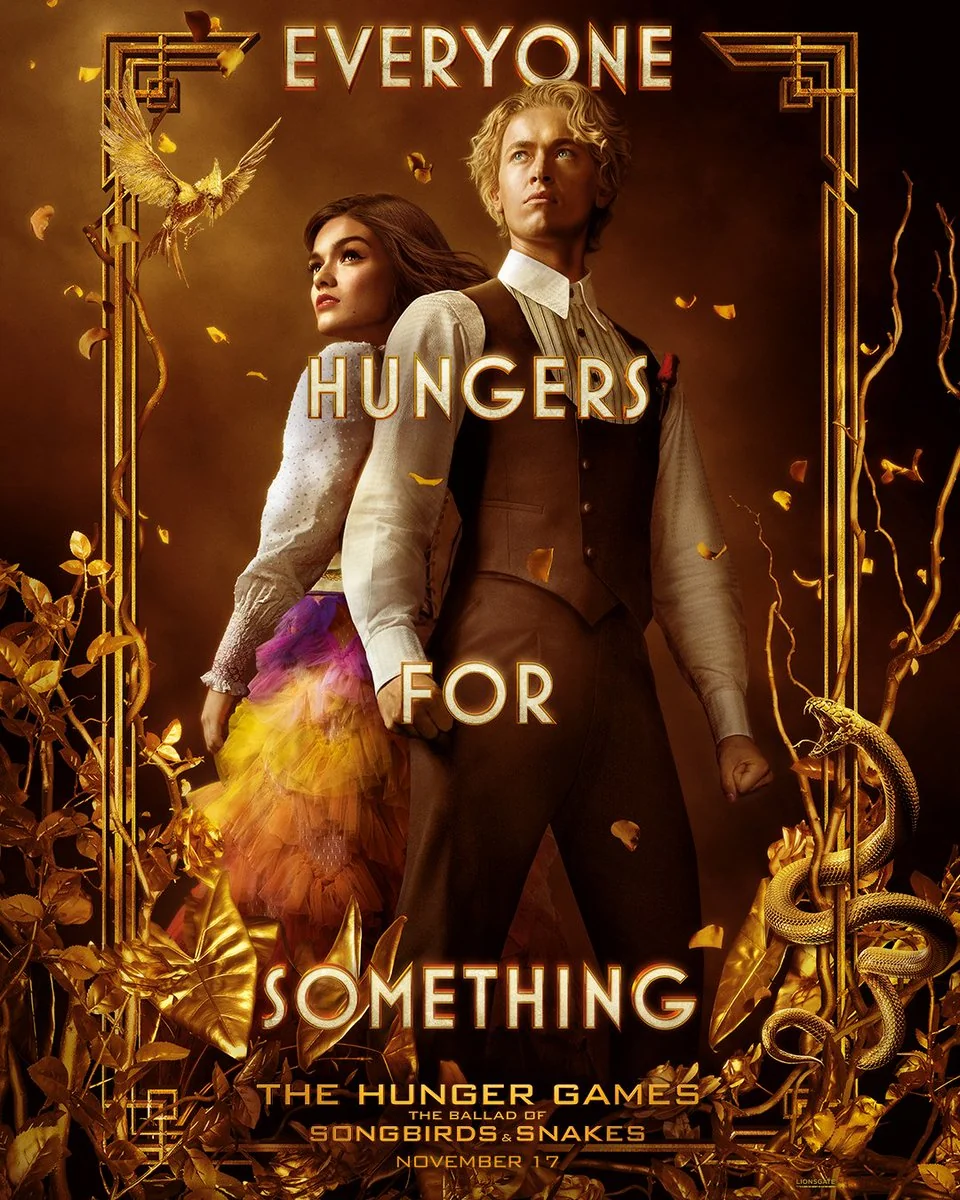Following the success of the original trilogy, Lionsgate released “The Hunger Games: Ballad of Songbirds & Snakes” to theaters. It premiered Friday, Nov. 17, and has generated over $200 million from global sales.
Based on reviews from Rotten Tomatoes, it left a mild taste in the mouth of critics, who gave it a rating of 64%. However, it was much better accepted by audiences with an 89% audience score. The film has a 7.2/10 rating on IMDb and was given an overall rating 3 out of 5 stars by Letterboxd users.
The plot of the movie surrounds Coriolanus Snow, current mentor in the 10th annual Hunger Games and future president of Panem. A prequel to the original three “Hunger Games” films, “The Ballad of Songbirds & Snakes” gives audiences a chance to better understand a man who will one day terrorize the districts outside the Capitol, and further builds the world created by author Suzanne Collins. It is an origin story for how the games went from falling out of favor to the televised sensation where Capitol viewers can rank and gamble on the 24 tributes sent into an arena to kill one another.
For a movie with high expectations and a relatively modest budget of $100 million, a critics’ score of 64% is reasonable. The beginnings of the movie are unimpressive, but as the film continues, it becomes more enjoyable and seems to improve upon itself.
The biggest weakness of the film is the dialogue in the first part. It feels more like a book being read aloud than real-life events. Perhaps this is unsurprising given that the movie is based on Collins’ newest release, but initially, it is hard to become immersed in the film. There are plenty of awkward cuts that reduce the fluidity of the film. Rather than transitioning in some way, it jumps into the next scene.
Included in the first third of the movie are the introductions of the two main characters, Coriolanus Snow and Lucy Gray Baird, played by Tom Blyth and Rachel Zegler, respectively. Their character entrances suffer from the unreal dialogue and weird cuts to new scenes. The most unfortunate of the two main characters is Lucy Gray, who sings unprompted, and is punished for it by having the camera set to what looks like the iPhone 0.5 zoom setting close to her face. It is an unsettling amount of cringe and intimacy packed into one moment.
The film is also separated into four parts: “The Dark Days,” two years into the war between the Capitol and the districts; “Part I: The Mentor”; “Part II: The Prize”; and “Part III: The Peacekeeper.” While this structure reflects the format of the books, it makes the film feel like a published rough draft.
The movie does get better as the minutes tick by. While it is unfortunate that the audience had to suffer first, the dialogue becomes less awkward and there are scenes that impress the audience with either their violence or hilarity.
Viola Davis, who plays Dr. Volumnia Gaul, gives a wonderfully terrifying performance as a crazed, sadistic, sociopathic woman who is hell-bent on continuing the 10-year tradition of the games. Peter Dinklage, the actor playing Dean Casca Highbottom; Josh Andrés Rivera, actor of bleeding-heart Sejanus Plinth; and others also give satisfactory performances.
Even the folksy soundtrack plays a part in developing the world of Panem, giving the audience a taste of the culture of District 12, home to Lucy Gray and later Katniss Everdeen.
While the film does an excellent job of telling the story of a tyrannical Snow and the “Survivor”-style last-man-standing horror show, the 2-hour-and-37-minute film omits too many details from the book. Everything the audience sees is through the eyes of Coriolanus Snow and so many of the events that shaped him and inspired later aspects of the Hunger Games are gone. “The Ballad of Songbirds & Snakes” breaks through the topsoil but struggles to break the permafrost underneath.
“Who are you in all this, do you determine?” Dr. Gaul asks Snow, near the end of the film.
Snow responds, “The victor.”
Coriolanus Snow will go on to become the future president as fans know him, but also the ultimate victor of the Hunger Games for 65 consecutive years.
Overall, the film is far from boring. In so many ways, it is a riveting and intelligent movie that reflects a lot of the real world. It is an incredible work of art with complex themes and excellent storytelling, but it falls short, in some ways, of qualifying as a great movie. The awkward camera cuts, the script and the movie format fail to meet higher expectations. It was good — but it could’ve been the best.









